AMD Zen 3 Ryzen Deep Dive Review: 5950X, 5900X, 5800X and 5600X Tested
by Dr. Ian Cutress on November 5, 2020 9:01 AM ESTCPU Tests: Synthetic
Most of the people in our industry have a love/hate relationship when it comes to synthetic tests. On the one hand, they’re often good for quick summaries of performance and are easy to use, but most of the time the tests aren’t related to any real software. Synthetic tests are often very good at burrowing down to a specific set of instructions and maximizing the performance out of those. Due to requests from a number of our readers, we have the following synthetic tests.
Linux OpenSSL Speed: SHA256
One of our readers reached out in early 2020 and stated that he was interested in looking at OpenSSL hashing rates in Linux. Luckily OpenSSL in Linux has a function called ‘speed’ that allows the user to determine how fast the system is for any given hashing algorithm, as well as signing and verifying messages.
OpenSSL offers a lot of algorithms to choose from, and based on a quick Twitter poll, we narrowed it down to the following:
- rsa2048 sign and rsa2048 verify
- sha256 at 8K block size
- md5 at 8K block size
For each of these tests, we run them in single thread and multithreaded mode. All the graphs are in our benchmark database, Bench, and we use the sha256 and md5 results in published reviews.
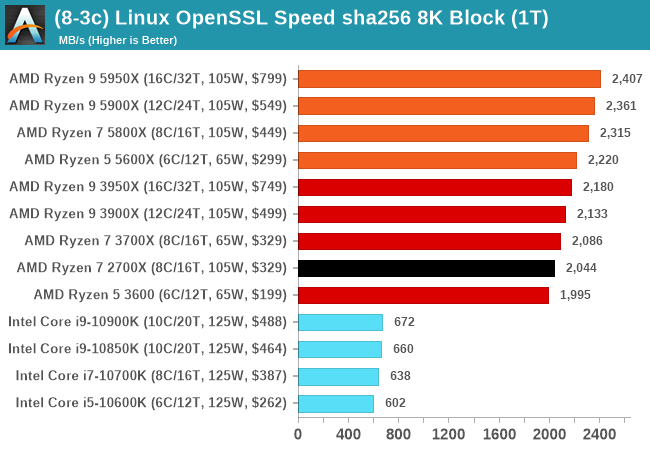
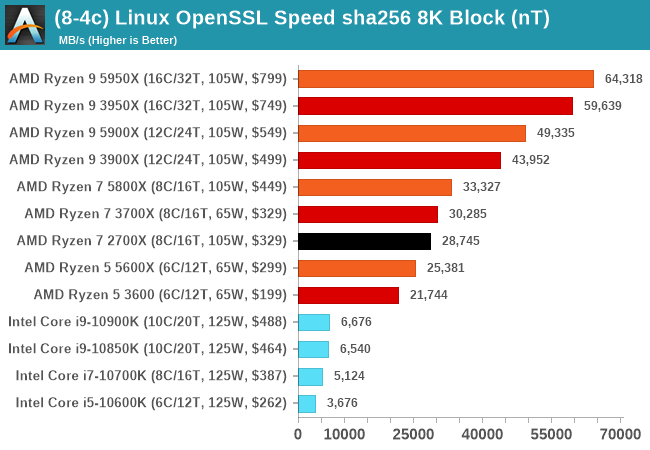
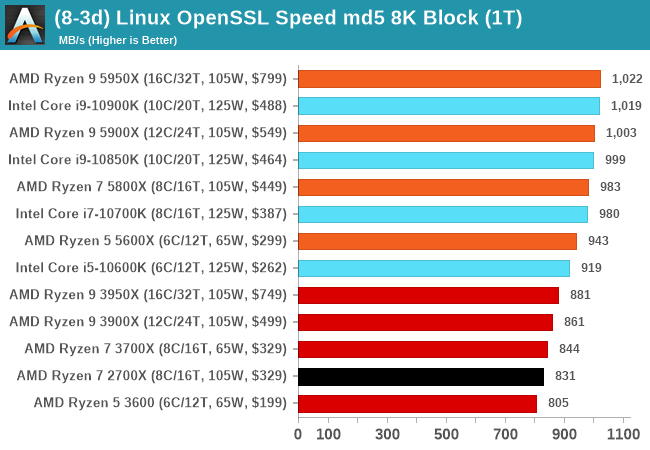
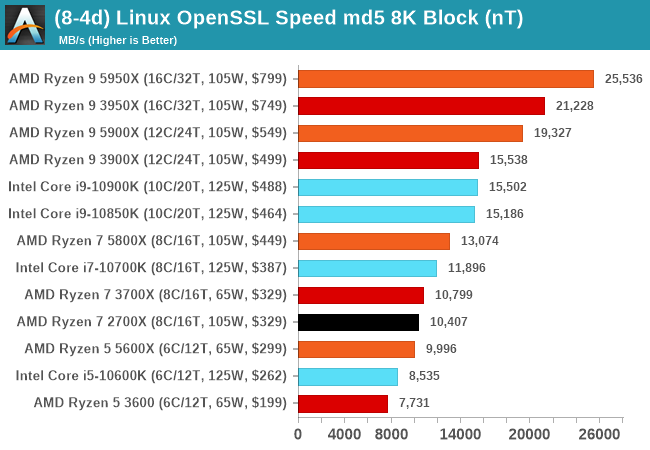
GeekBench 5: Link
As a common tool for cross-platform testing between mobile, PC, and Mac, GeekBench is an ultimate exercise in synthetic testing across a range of algorithms looking for peak throughput. Tests include encryption, compression, fast Fourier transform, memory operations, n-body physics, matrix operations, histogram manipulation, and HTML parsing.
I’m including this test due to popular demand, although the results do come across as overly synthetic, and a lot of users often put a lot of weight behind the test due to the fact that it is compiled across different platforms (although with different compilers).
We have both GB5 and GB4 results in our benchmark database. GB5 was introduced to our test suite after already having tested ~25 CPUs, and so the results are a little sporadic by comparison. These spots will be filled in when we retest any of the CPUs.
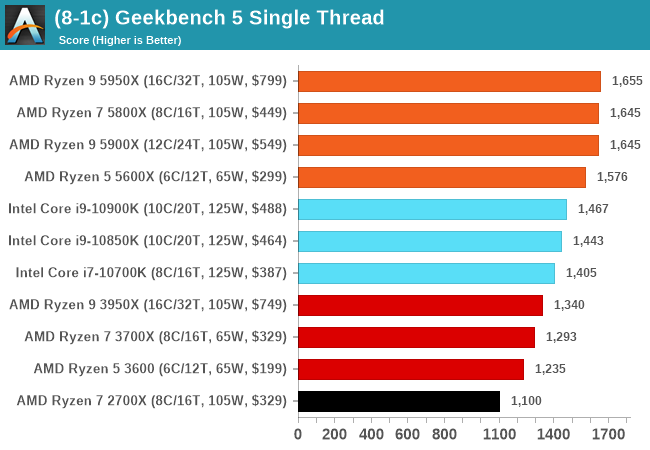
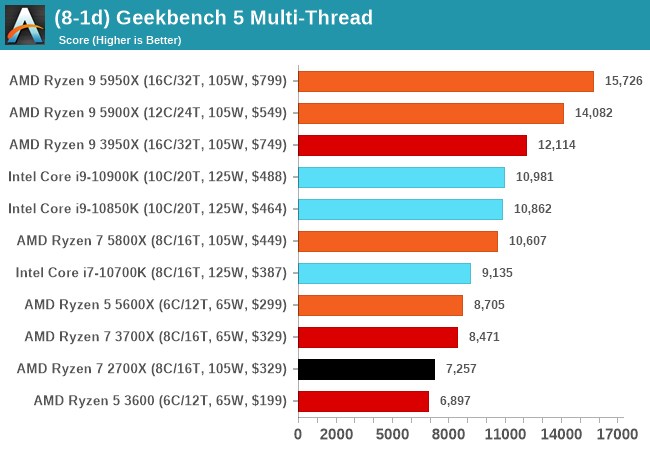










339 Comments
View All Comments
Spunjji - Sunday, November 8, 2020 - link
IO die is the same between all of them - they probably just haven't churned enough chiplets out yet. Those top-end chips probably need a high bin to reach their intended clocks and power levels, too.lmcd - Monday, November 9, 2020 - link
That seems like a mistake then -- should've released a 5890 and 5940 with lower clocks. At some point professionals are buying for IPC, thread count, and base clock speed.Qasar - Tuesday, November 10, 2020 - link
how is that a mistake ? if no need to change the IO die yet, why change anything ?Spunjji - Sunday, November 8, 2020 - link
On launch? Not really.If they're still unavailable a month or two from now, I'll be greatly disappointed.
Machinus - Thursday, November 5, 2020 - link
Looks like a great set of chips for anyone who gets one mailed to them directly from AMD.Good luck buying one in a store.
danbob999 - Thursday, November 5, 2020 - link
480p Low quality gaming benchmarks? Really? Someone really play Civ6 with those settings?What's the point? Who cares if CPU X has 454 fps while Y only does 322?
Hxx - Thursday, November 5, 2020 - link
those are unrealistic scenarios just to showcase the IPC gains over prev gen and competition. But yeah normally you would pick the resolution you are playing at and go from there. In this case at 1080p / 1440p it trades blows with Intel in most titles.silverblue - Thursday, November 5, 2020 - link
I'm not sure why the test revolves around frame rate, and not turn time. To use Gamers Nexus as a source, the 5950X completes a turn in 26.6 seconds, whereas the 10900K does it in 30.9 (29.3 OC to 5.2GHz), and the 3950X in 32.4. So, in this one test, the 10900K takes 16% longer, and the 3950X 22%.Spunjji - Sunday, November 8, 2020 - link
Yeah, I was a bit confused by not seeing turn times for Civ as that's the really big drag in late game scenarios.ExarKun333 - Thursday, November 5, 2020 - link
Zen 3 feels a lot lot Core 2 ~ 14 years ago. Wow, very impressive.